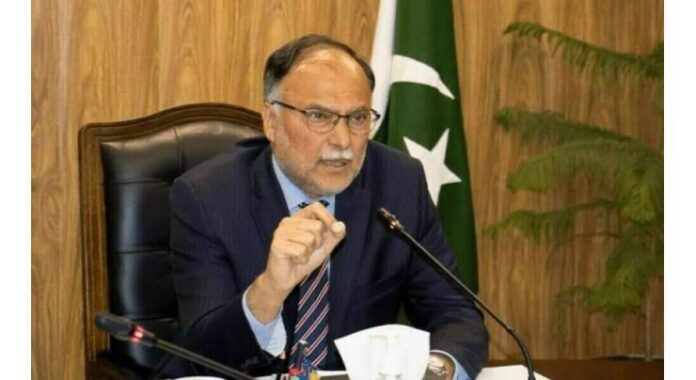Planning Minister Ahsan Iqbal has defended the inclusion of donor agencies’ representatives in the newly formed Poverty Estimation Committee, stating that the government wanted to avoid discrepancies in poverty data and ensure cross-verification before release.
At a press conference on the Monthly Development Update, he said the government would not drop the catch of the CPEC, adding that investment under the China-Pakistan Economic Corridor had stalled between 2018 and 2022. He said China invested $25 billion under CPEC, but the PTI-led government’s policies halted progress and shifted multi-billion-dollar investment to countries such as Cambodia and Laos.
He said the government had restarted CPEC-related work from “ground zero”. He added that discussions with China included 10,000 PhD scholarships in AI, engineering and related fields, while negotiations with the United States aimed to secure another 10,000 scholarships under the Knowledge Corridor.
The minister said the Higher Education Commission had been directed to conduct a performance audit of universities across seven parameters. He said an MoU had also been signed with Cambridge to promote entrepreneurial knowledge among students.
On the 27th Constitutional Amendment, he said the legislation implemented judiciary-related clauses agreed between the PML-N and PPP under the Charter of Democracy. He added that the amendment integrated Armed Forces structures in line with modern warfare requirements.
He said a helpline had been established for reporting corruption in development projects, with the Monitoring and Evaluation Wing assessing 22 projects in October 2025.
Discussing the economy, he said Pakistan showed resilience during the 2025 floods through NDMA-led evacuations, coordinated relief operations and contingency planning, which helped maintain continuity in key sectors.
He said inflation remained on a downward trend in July and August—4.1 per cent and 3.0 per cent respectively—before rising temporarily due to flood disruptions, reaching 5.6 per cent in September and 6.2 per cent in October. He said average inflation for July–October stood at 4.7 per cent compared to 8.7 per cent last year.
Large-scale manufacturing, he said, had entered a recovery phase after two years of contraction. The Federal Board of Revenue collected Rs3.8 trillion in July–October, up 11.4 per cent from last year.
Goods exports rose 0.7 per cent in July–August but declined 4 per cent in July–October due to flood-related supply issues. Services exports grew 14.7 per cent to $2.2 billion, with IT exports increasing 20.5 per cent to $1.1 billion. Imports grew 15.1 per cent to $23 billion, reflecting industrial activity and higher demand for capital goods. Remittances reached $13.0 billion, up 9.3 per cent from last year.




